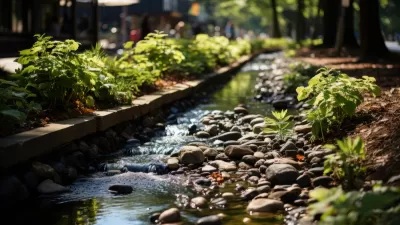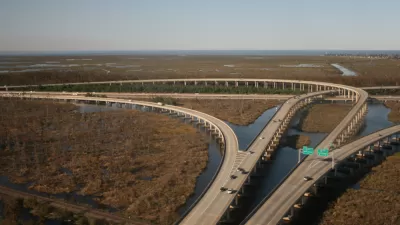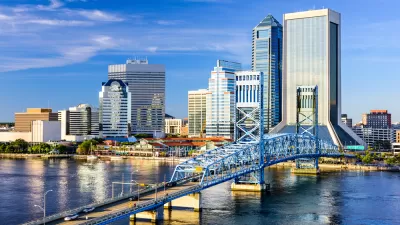A Rutgers professor restores natural processes to help shorelines adapt to rising sea levels.
In The Harvard Gazette, Alvin Powell reports on the work of Professor Steven Handel, who is using green infrastructure to combat the phenomenon known as "coastal squeeze."
Coastal squeeze occurs in habitats that exist between a naturally migrating shoreline and a man-made immoveable barrier, like a road.
Or as Powell writes, "what people may view as scenic coastal roadways, the natural communities of plants and animals may experience as terminal barriers, blocking their migratory response to rising seas."
Handel is a Rutgers professor visiting who worked on the development of the Fresh Kills landfill site on Staten Island; his approach is not unlike what the Dutch have been doing for many years, or what is now being done in coastal cities like San Francisco.
"The approach Handel described begins with accepting that the seas will rise. It takes projections for how sea levels will change familiar landscapes and moves forward from there, looking for opportunities such as inland water bodies and waterways that may soon be brackish, making them potential sites for future salt marshes. Newly engineered marshes can replace those drowned by the rising tide, buffer storms, and provide breeding grounds for fish and birds. Other opportunities lie in brownfields and abandoned sites that could be rehabilitated into places where communities meet the sea and around which fresh development can grow."
In cities across the United States, green infrastructure is an increasingly popular tool to mitigate the effects of climate change, especially in the wake of natural disasters.
FULL STORY: Transforming the ‘coastal squeeze’ from climate change

Planetizen Federal Action Tracker
A weekly monitor of how Trump’s orders and actions are impacting planners and planning in America.

Chicago’s Ghost Rails
Just beneath the surface of the modern city lie the remnants of its expansive early 20th-century streetcar system.

San Antonio and Austin are Fusing Into one Massive Megaregion
The region spanning the two central Texas cities is growing fast, posing challenges for local infrastructure and water supplies.

Since Zion's Shuttles Went Electric “The Smog is Gone”
Visitors to Zion National Park can enjoy the canyon via the nation’s first fully electric park shuttle system.

Trump Distributing DOT Safety Funds at 1/10 Rate of Biden
Funds for Safe Streets and other transportation safety and equity programs are being held up by administrative reviews and conflicts with the Trump administration’s priorities.

German Cities Subsidize Taxis for Women Amid Wave of Violence
Free or low-cost taxi rides can help women navigate cities more safely, but critics say the programs don't address the root causes of violence against women.
Urban Design for Planners 1: Software Tools
This six-course series explores essential urban design concepts using open source software and equips planners with the tools they need to participate fully in the urban design process.
Planning for Universal Design
Learn the tools for implementing Universal Design in planning regulations.
planning NEXT
Appalachian Highlands Housing Partners
Mpact (founded as Rail~Volution)
City of Camden Redevelopment Agency
City of Astoria
City of Portland
City of Laramie





























